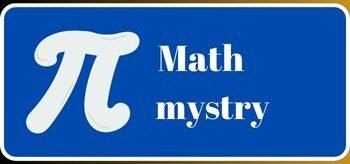Currently Empty: $0.00
Strategies for Academic Excellence in Digital Learning Environments
Success in online education requires a triad of discipline, organization, and active participation. Begin by establishing well-defined academic objectives and comprehensively analyzing syllabus requirements to maintain directional focus. Construct a dedicated learning zone devoid of distractions and implement a regimented timetable to ensure academic consistency. Enhance productivity through strategic temporal management – employ organizational tools such as digital planners to coordinate academic responsibilities, while employing task segmentation methodologies to sustain progressive momentum.
Specialized Adaptations:
Corporate Learners: “Achieving mastery in professional development courses necessitates tactical preparation and autonomous regulation. Articulate performance benchmarks and curricular expectations during the initial phase to synchronize professional development initiatives. Institute an ergonomic learning environment and maintain an invariable study cadence. Maximize operational efficiency through systematic activity coordination and the decomposition of sophisticated projects into executable units.”
Visual-Cognitive Learners: “Academic achievement in virtual settings originates with schematic planning: formulate learning intentions, comprehend evaluative criteria, and engineer an optimized study area. Implement chromatic scheduling systems or advancement monitors to graphically represent temporal commitments, while employing modular content assimilation to mitigate cognitive overload.”
Cognitive Optimization Framework
To actualize maximal intellectual growth, immerse yourself in participatory engagement – contribute to academic discourse, pursue conceptual clarification, and synergize with peer learners to augment comprehension. Maintain methodically organized scholarly annotations and reference materials, while integrating deliberate intermissions to preserve concentration and prevent mental exhaustion. Harmonize your schedule with appropriate recuperation periods, balanced nutrition, and kinetic activity to optimize neurological performance. Capitalize on available academic technologies, mentorship opportunities, and pedagogical resources, while conducting iterative progress assessments to perpetuate developmental trajectory and accomplish educational milestones.
Professional Development Variation: “Augment your competency acquisition through intellectual exchange, professional networking, and practical application of theoretical constructs. Systemize knowledge management through efficient documentation protocols, implement strategic pacing mechanisms, and maintain vitality through holistic self-regulation. Leverage institutional assets and monitor developmental benchmarks to quantify progression and refine professional methodologies.”
Traditional Student Adaptation: “Enhance information retention through collaborative study collectives, academic inquiry with faculty members, and peer-to-peer knowledge transfer. Maintain organized learning spaces, incorporate brief restorative intervals, and equilibrate scholastic demands with wellbeing practices. Utilize institutional research assets or digital learning aids, while conducting weekly performance audits to maintain academic alignment.”
Methodologies for Expertise Cultivation
Developing professional mastery necessitates sustained dedication and applied practice. Initiate by broadening your informational inputs – investigate multidisciplinary literature, periodicals, and empirical studies. Participate actively in scholarly dialogues, hands-on application, and analytical problem-resolution activities. Augment your knowledge base through formalized instructional programs including certified online curricula or industry-specific seminars to maintain professional currency. Hone evaluative competencies through multiperspectival analysis and source verification processes. Implement cyclical self-assessment protocols and seek developmental feedback to pinpoint enhancement domains and monitor skill progression.
The Paradigm-Shifting Potential of Education
Learning operates as a transformative mechanism for holistic advancement, stimulating scholarly inquiry and autonomous cognition. It establishes the structural foundation for individuals to examine theoretical constructs, critically analyze informational data, and operationalize solutions with efficacy. By promoting cognitive flexibility and innovative methodologies, education equips learners to overcome challenges, expedite vocational progression, and actualize personal ambitions. The perpetual quest for knowledge simultaneously fortifies self-confidence while generating access to novel professional and personal prospects, thereby establishing education as a primary catalyst for civilizational advancement.
Customization Options:
Linguistic Complexity Adjustment (Basic/Advanced)
Domain-Specific Skill Emphasis (Technical/Interpersonal)
Industry-Specific Adaptation
Incorporation of Inspirational Narratives or Case Studies.


